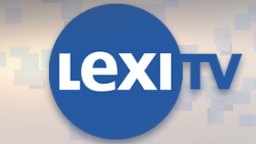LexiTV
| Television broadcast | |
|---|---|
| Original title | LexiTV |
| Country of production | Germany |
| Year (s) | 2002 to 2018 |
| Production company |
Central German radio |
| length | 60 minutes |
| Broadcasting cycle |
Monday to Friday 3:00 p.m. to 4:00 p.m. |
| genre | Knowledge magazine |
| Moderation | Victoria Herrmann |
| First broadcast | January 2, 2002 |
LexiTV was a television broadcast by Mitteldeutscher Rundfunk (MDR) . The program was broadcast Monday through Friday from 3:00 p.m. to 4:00 p.m. on MDR television . As a knowledge magazine , it was each dedicated to a specific topic. The magazine was discontinued in June 2018.
format
The magazine has prepared compact knowledge on the subjects of people, nature, technology, society, culture and science. Many of the topics were also directly rooted in Thuringia, Saxony-Anhalt and Saxony or had regional references. The program aimed to provide orientation and convey secure knowledge in a timely, cross-media, exciting and modern way in the sense of the public education mandate. The magazine was broadcast five times a week - from Monday to Friday - between 3:00 p.m. and 4:00 p.m. on MDR television. The next morning, around 6:15 a.m., the broadcast of the previous day was repeated.
The editorial responsibility lay with the MDR television editorship Education and Science in the program area Culture and Science.
Moderation
Victoria Herrmann has hosted the show since it was first broadcast . She can also be seen, together with Andreas Neugeboren , in the series "Unterwegs in Sachsen-Anhalt" on MDR television.
production
The broadcast was recorded in the virtual studio of the MDR Landesfunkhaus Erfurt. Victoria Herrmann presented the content of the program without a studio backdrop in the usual sense. Photos or graphics were "built into" the program as virtual elements by the computer, placed in the foreground or background and adapted to remote-controlled tracking shots. The adaptation of the studio, post-production and editorial processes to tapeless work processes made it possible to present the topics of the program across media.
literature
- Stoppe, Sebastian / Werneburg, Katarina (2012): Emotionalisation and personalization in science programs using LexiTV as an example, in: Kretzschmar, Judith / Mundhenke, Florian (ed.), From the flicker box to IP TV? Upheavals and future prospects of the medium of television, Munich, pp. 113–129, ISBN 978-3-89975-277-9
